How has the media landscape in the Philippines evolved in recent years? Are Filipino journalists facing challenges in their pursuit of press freedom? Let’s dive into the world of journalism in the Philippines to uncover the realities, obstacles, and efforts being made to protect the integrity of news reporting in the country.
Key Takeaways:
- The media industry in the Philippines is facing challenges, including attacks on journalists and threats to press freedom.
- Trust in the media in the country is low, and media organizations have been targeted by the government.
- Efforts are being made to protect journalists and promote ethical journalism practices.
- The media landscape is evolving, with online news consumption on the rise.
- Collaboration among media organizations and support from society are crucial in upholding press freedom and democracy in the Philippines.
Attacks on Journalists in the Philippines
Journalism in the Philippines operates in a hostile environment where journalists who criticize President Duterte and his policies face verbal attacks, threats, and court cases. Duterte has consistently vilified journalists, branding them as purveyors of “fake news” or “enemies of the state.” These attacks have serious repercussions for press freedom in the country.
One significant case is the shutdown of ABS-CBN, a major media network that has been critical of the Duterte administration. This closure resulted in limited access to its content via cable and digital platforms, impacting public access to diverse news sources.
An emblematic case is the conviction of Maria Ressa, an internationally acclaimed journalist and the founder of Rappler, for cyber libel. This move has been widely criticized as an attack on press freedom, with implications for journalists seeking to hold those in power accountable.
“We are not the enemy,” Ressa stated during her trial. “We hold power to account. We are headless chickens running around just trying to keep the public informed.”
In addition to legal actions, journalists in the Philippines face physical attacks and even death, highlighting the perilous nature of their work. These acts of violence not only threaten the lives of individual journalists but also instill fear among media professionals, resulting in self-censorship.
The image above visually represents the risks and challenges faced by journalists in the Philippines, spotlighting the urgent need for greater protection and respect for press freedom.
| Key challenges faced by journalists in the Philippines: | Impact |
|---|---|
| Verbal attacks and threats from President Duterte and his supporters | Undermines the credibility and safety of journalists, stifling their ability to report freely |
| Closure of media outlets critical of the government | Leads to limited access to diverse news sources and potential loss of jobs for media professionals |
| Conviction of journalists for libel and other charges | Erodes press freedom and serves as a deterrent for investigative reporting and holding power to account |
| Physical attacks and even deaths of journalists | Creates a climate of fear, self-censorship, and undermines investigative journalism |
The targeted attacks and persecution of journalists in the Philippines form a significant threat to freedom of the press. It is crucial to protect the rights of journalists and uphold press freedom as fundamental pillars of democracy.
Trust in the Media in the Philippines
Trust in the media in the Philippines is alarmingly low, according to the Digital News Report. The overall trust in news in the country stands at only 27%. This low level of trust can be attributed to the attacks faced by media outlets from President Rodrigo Duterte and his supporters. Media organizations that have been targeted by these attacks have experienced a decline in trust among the public.
However, there are still media outlets that have managed to maintain trust even in the face of such challenges. Despite its recent shutdown, ABS-CBN, a major TV network in the Philippines, scored an impressive 63% in the trust survey. Similarly, Rappler, an independent news site, scored 49%, showcasing a significant level of public trust.
Traditional television remains the dominant source of news in the Philippines. However, the rise of digital platforms has led to an increase in online news consumption, especially through smartphones. Filipinos are now more connected than ever, constantly seeking news and information on their mobile devices.
“Prominent media outlets like ABS-CBN and Rappler have faced attacks from the government, but they still managed to maintain a considerable level of public trust.”
Despite the increase in online news consumption, Filipinos are still hesitant to pay for news content online. The digital landscape remains largely free, which poses challenges for media organizations in terms of sustainability and financial viability.
In the table below, we can see the trust ratings of various media outlets in the Philippines:
| Media Outlet | Trust Rating (%) |
|---|---|
| ABS-CBN | 63 |
| Rappler | 49 |

Despite the challenges and low trust in the media, it is essential to recognize the efforts made by media organizations to deliver accurate and reliable news to the public. Building trust is crucial for the media to continue playing its vital role in informing and empowering the Filipino population.
Impact of Attacks on Media Organizations
The attacks on media organizations in the Philippines have had a profound impact on the country’s media landscape and freedom of expression. Notably, the closure of ABS-CBN, a leading radio and television network, has severely limited access to its content through cable television and digital platforms. This closure has undoubtedly curtailed the availability of diverse news sources for the Filipino population. Furthermore, Rappler, an acclaimed news site, has faced relentless persecution through multiple court cases, including the conviction of its CEO, Maria Ressa, for cyber libel.
These attacks on media outlets have not only disrupted their operations but have also fostered an atmosphere of fear and self-censorship among journalists. The threat of legal action and harassment makes it increasingly challenging for media professionals to report objectively and hold power accountable. As a result, the closure and persecution of media organizations raise significant concerns about freedom of expression and press freedom in the Philippines.
It is essential to recognize that a vibrant and independent media is crucial for a thriving democracy. Journalists must be able to operate without fear of retribution, ensuring that diverse voices are heard and critical issues are brought to the public’s attention. The closure and persecution of media outlets not only undermine press freedom but also diminish the public’s access to accurate information and balanced reporting.
“Freedom of the press is not just important to democracy, it is democracy.” – Walter Cronkite
In order to safeguard press freedom and protect the vital role of journalists in Philippine society, it is imperative that both local and international communities lend their support. The international community can pressure the Philippine government to respect press freedom and uphold the principles of democracy. Similarly, civil society organizations, human rights advocates, and citizens must continue to advocate for the protection of media organizations and the rights of journalists.
Efforts to Protect Journalists in the Philippines
In the face of escalating attacks on journalists, media stakeholders in the Philippines have come together to establish the Philippine Plan of Action on the Safety of Journalists. This comprehensive five-point program aims to safeguard the safety and well-being of journalists, ensuring their ability to freely and responsibly report the news.
Firstly, the plan focuses on improving the working conditions for journalists, advocating for fair wages, better equipment, and enhanced safety measures in the field. By prioritizing the physical and mental well-being of journalists, the plan aims to create an environment that fosters quality journalism.
Secondly, legal advocacy plays a crucial role in protecting journalists from harassment and persecution. The plan seeks to provide legal support and representation to journalists facing legal challenges, ensuring their rights are upheld and their voices are heard.
Thirdly, the plan places significant emphasis on public education and awareness. By promoting the importance of a free press in a democratic society, the plan aims to create a more informed public that values and supports independent journalism. It seeks to debunk misinformation, combat disinformation, and foster critical thinking among media consumers.
The fourth point of the plan seeks to address the issue of impunity by holding accountable those responsible for attacks on journalists. It advocates for thorough investigations and prosecution of perpetrators, sending a strong message that violence and intimidation against journalists will not be tolerated.
Furthermore, the plan recognizes the growing threat of online harassment and attacks on journalists. Efforts have been made to provide counseling and support for journalists facing online threats and to ensure their digital safety in the age of social media.
Through these collective efforts, the Philippine Plan of Action on the Safety of Journalists aims to create a safer and more conducive environment for journalists to practice their profession without fear of reprisal. By safeguarding press freedom and protecting journalism, the plan seeks to uphold democratic values and promote a more transparent and accountable society.
Philippine Press Institute and its Role in Defending Press Freedom
The Philippine Press Institute (PPI) stands as the oldest professional media organization in the Philippines, safeguarding press freedom and promoting ethical standards for journalists. The PPI actively engages in various initiatives to protect the rights and freedoms of journalists while striving for a vibrant and responsible media landscape.
Through its comprehensive training programs, the PPI equips journalists with the necessary skills and knowledge to navigate the evolving media industry. These training programs cover a wide range of areas, including journalistic ethics, legal advocacy, and technology advancements.
Recognizing the importance of education, the PPI also organizes educational activities that aim to foster a culture of responsible journalism. These activities serve as platforms for journalists to exchange ideas, share best practices, and enhance their professional development.
Committed to the defense of press freedom, the PPI actively collaborates with other media organizations to combat media killings, attacks, and violence. By joining forces with like-minded institutions, the PPI amplifies its advocacy efforts and strengthens collective voices in demanding accountability and justice.
“Journalism can never be silent: that is its greatest virtue and its greatest fault. It must speak, and speak immediately, while the echoes of wonder, the claims of triumph and the signs of horror are still in the air.” – Henry Anatole Grunwald
Civic Journalism, National Press Forum, and the Community Press Awards
As part of its commitment to promoting excellence in journalism, the PPI spearheads flagship programs that celebrate and recognize outstanding journalistic achievements. These programs provide platforms for journalists to showcase their work, driving innovation and raising the bar for journalistic standards.
The Civic Journalism program endeavors to engage communities and enhance citizen participation in the news-making process. By amplifying the voices of ordinary citizens, civic journalism empowers communities, fosters inclusive dialogue, and strengthens democracy.
The National Press Forum serves as a crucial platform for journalists to come together, share insights, and discuss emerging trends and challenges in the media landscape. It enables journalists to exchange experiences, forge valuable connections, and collaborate on ways to safeguard press freedom and uphold professional integrity.
Lastly, the Community Press Awards recognize the vital role played by community newspapers in providing localized and relevant news. These awards celebrate journalistic excellence in various categories, including reporting, feature writing, and photojournalism, encouraging excellence at the grassroots level.
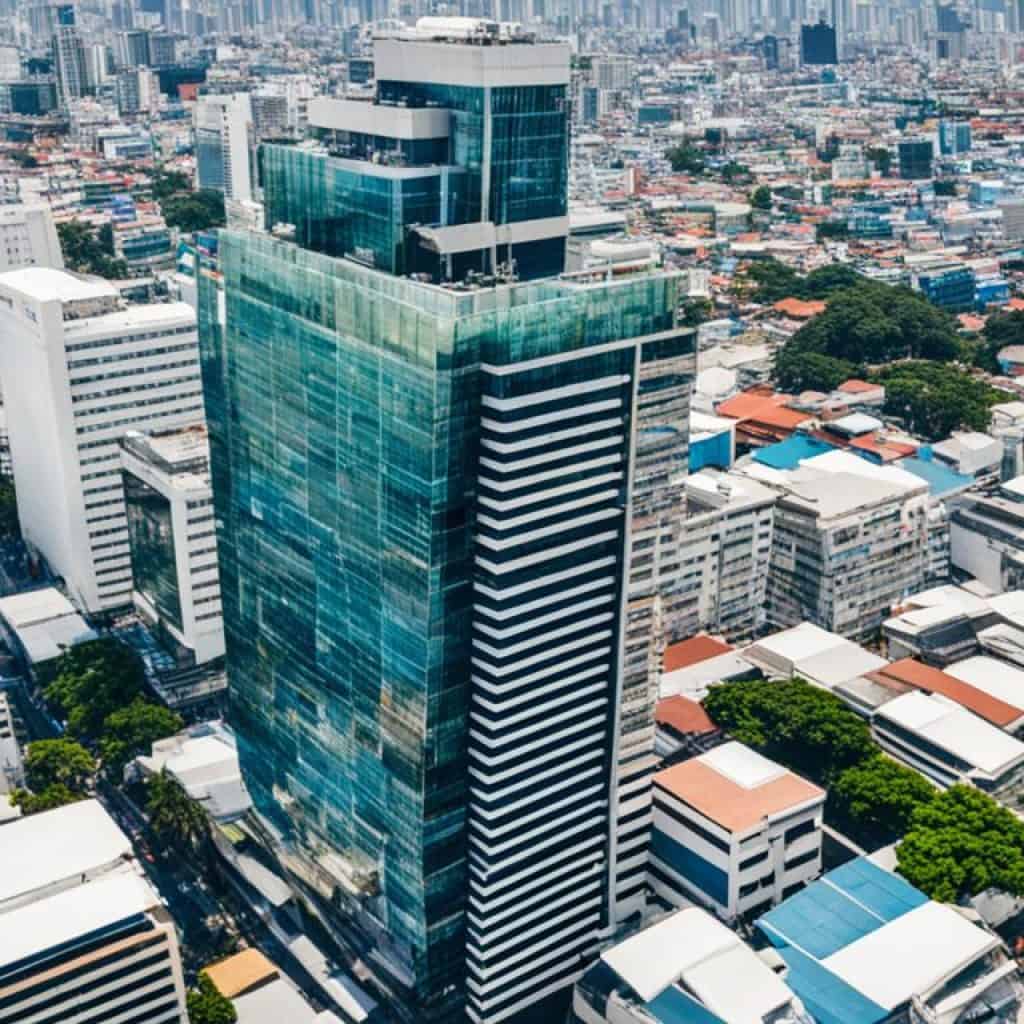
| Eligible Organizations | Membership Benefits |
|---|---|
| Newspapers |
|
| Newsmagazines |
|
| News Organizations |
|
Media Advocacy and Partnerships in the Philippines
Media advocacy plays a crucial role in defending press freedom and promoting the welfare of journalists in the Philippines. The Philippine Press Institute (PPI) actively engages in advocacy work, collaborating with other media organizations to protect the rights and safety of journalists. One of the key initiatives supported by PPI is the passage of the Freedom of Information Act, which aims to promote transparency and accountability in the government.
PPI also works closely with the Presidential Task Force on Media Security to address issues of media persecution and violence against journalists. By partnering with organizations such as the Hanns Seidel Foundation, Nickel Asia Corporation, and International Media Support, PPI gains essential resources and support to carry out its programs and activities.
“We believe that a united front is essential in safeguarding the integrity and independence of the media,” says John Santos, the President of PPI. “By establishing partnerships and alliances, we can amplify our voices and strengthen our advocacy for press freedom and ethical journalism in the Philippines.”
The collaboration between PPI and its partners extends beyond advocacy efforts. These partnerships enable PPI to organize roundtable discussions, media seminars, and workshops. These events provide opportunities for journalists to enhance their skills, stay informed about industry developments, and promote high standards of journalism in the country.
Additionally, PPI hosts the Annual Civic Journalism Community Press Awards, which recognize outstanding contributions to community journalism. This prestigious event celebrates the important role of community newspapers in providing relevant and meaningful news coverage to local communities.
The diagram above illustrates the network of media organizations and partnerships involved in media advocacy and the promotion of press freedom in the Philippines.
| Partners | Areas of Collaboration |
|---|---|
| Hanns Seidel Foundation | Supports media training programs and capacity-building initiatives |
| Nickel Asia Corporation | Funds journalism scholarships and supports media literacy campaigns |
| International Media Support | Provides resources for journalist safety and protection programs |
Through media advocacy and partnerships, the Philippine Press Institute continues to champion the importance of press freedom, defend the rights of journalists, and enhance the quality of journalism in the Philippines. By collaborating and leveraging resources, media organizations can amplify their impact and better serve the interests of a vibrant and democratic society.
Training and Educational Programs for Filipino Journalists
The Philippine Press Institute (PPI) is committed to nurturing the skills and knowledge of Filipino journalists through its comprehensive training programs and educational activities. PPI understands the importance of continuous professional development in the ever-evolving field of journalism. By equipping journalists with essential tools and knowledge, PPI aims to elevate the standards of journalism in the Philippines and foster a culture of excellence.
PPI offers a diverse range of training programs that cover various aspects of journalism. These programs include workshops on writing techniques, libel and ethics, newspaper management, and the art of covering special interest activities. Through interactive sessions and practical exercises, journalists gain valuable insights and hands-on experience that enhance their abilities to deliver accurate and compelling stories.
In collaboration with local partners, PPI also conducts seminars and workshops that focus on specific areas of journalism. These specialized programs delve deep into crucial topics such as environmental reporting, business and economy, health journalism, and technology advancements. By addressing these specific areas of interest, PPI ensures that journalists receive targeted training that caters to their professional needs.
“The training programs offered by PPI have been instrumental in my professional growth as a journalist. The workshops helped me develop a deeper understanding of journalistic ethics and the importance of accurate reporting. I feel more confident in my abilities to deliver meaningful stories that resonate with our readers.” – Maria Santos, Senior Journalist at The Philippine Daily Inquirer
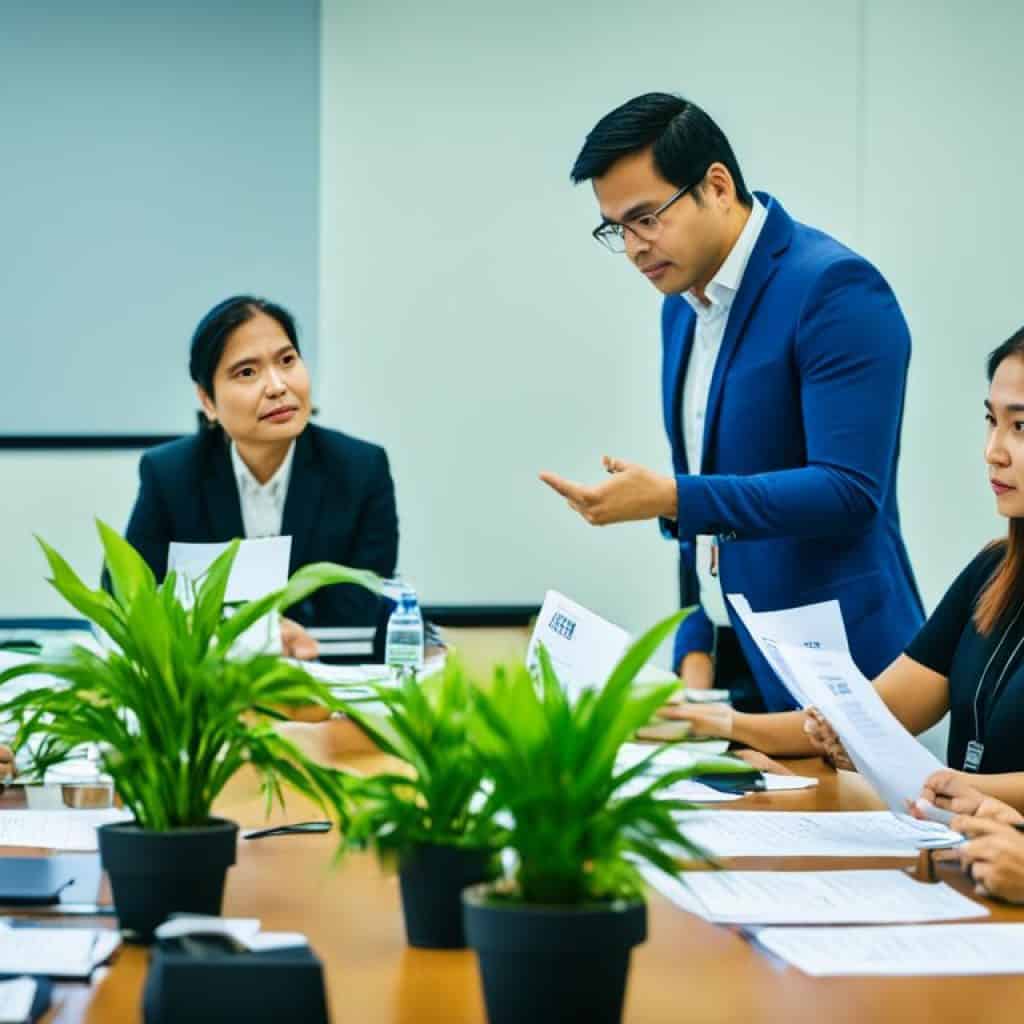
Furthermore, PPI recognizes the value of continuous learning and staying up-to-date with the latest trends and developments in the media industry. To facilitate this, PPI provides access to a vast network of journalism resources, including online publications, research databases, and expert insights. This enables journalists to stay informed and deepen their understanding of emerging issues and changing dynamics within the field.
By offering comprehensive training programs and educational activities, PPI strives to create opportunities for the continuous professional development of Filipino journalists. Through these initiatives, PPI aims to empower journalists to deliver high-quality journalism that upholds the principles of accuracy, integrity, and public service.
Civic Journalism and Community Press Awards
Civic journalism is a powerful tool for fostering community engagement and empowering citizens in the Philippines. The Philippine Press Institute (PPI) recognizes the importance of citizen participation in the news-making process and has made it a cornerstone of their initiatives. PPI’s civic journalism program encourages journalists to go beyond traditional reporting and actively involve communities in shaping news stories.
The Annual Civic Journalism Community Press Awards, organized by PPI, celebrates and honors the outstanding contributions of community newspapers in promoting civic engagement and journalistic excellence. These prestigious awards highlight the vital role that community newspapers play in delivering insightful and impactful reporting that resonates with local audiences.
At the Community Press Awards, papers are recognized for their exemplary work across various categories, including editing, editorial page, science and environment reporting, and photojournalism. The Community Press Awards not only acknowledge the dedication and talent of journalists working in community newspapers but also inspire and motivate others to strive for excellence in their own reporting.
Through promoting this culture of journalistic excellence, PPI aims to raise the standard of community journalism in the Philippines and highlight its significant role in strengthening democracy and empowering communities. These awards serve as a platform for recognizing and celebrating the impactful stories that originate from community newspapers, showcasing their commitment to providing accurate, relevant, and transformative journalism.
| Category | Description |
|---|---|
| Editing | Recognizes newspapers with exceptional editing practices in terms of accuracy, clarity, and storytelling. |
| Editorial Page | Highlights newspapers that demonstrate insightful and thought-provoking editorial content, contributing to public discourse. |
| Science and Environment Reporting | Acknowledges newspapers that showcase outstanding coverage of scientific advancements, environmental issues, and their impact on society. |
| Photojournalism | Unveils the artistry and skill of photographers who capture compelling visual narratives that accompany and enhance news stories. |
By recognizing community newspapers at the Annual Civic Journalism Community Press Awards, PPI aims to inspire and encourage continuous improvement within the sector. It celebrates the dedication, professionalism, and journalistic excellence displayed by local journalists and newspapers throughout the Philippines. Through this program, PPI ensures that the impactful work of community journalists does not go unnoticed, recognizing the vital role they play in informing, empowering, and uniting their respective communities.
Media Landscape and Consumption Habits in the Philippines
The media landscape in the Philippines is undergoing a significant transformation due to the rise of digital media and the increasing popularity of social media platforms. While traditional TV still holds a dominant position, online news consumption is rapidly gaining traction among urban audiences.
The majority of Filipinos now access news through their smartphones, reflecting the growing reliance on digital platforms for information. Social media, especially Facebook, plays a pivotal role in news consumption and sharing, allowing users to stay connected with the latest updates from their favorite media organizations and engage in discussions.
Some of the most visited news sites in the Philippines include ABS-CBN, GMA Network, and Philippine Daily Inquirer. These media organizations continue to attract a broad audience and deliver news across multiple digital channels.
Media Consumption Habits in the Philippines
To get a better understanding of media consumption habits in the Philippines, let’s explore some key trends:
- Traditional TV remains the primary source of news for many Filipinos, especially those in rural areas with limited access to the internet.
- Online news consumption is on the rise, particularly among urban audiences who have better internet connectivity and a greater affinity for digital platforms.
- Social media platforms like Facebook, Twitter, and YouTube are popular sources for news, enabling Filipinos to access a wide range of content and engage with media organizations and fellow news consumers.
- Filipinos show a reluctance to pay for online news, resulting in digital content being mostly free and supported by advertising revenue.
To provide a visual representation, here is a table showcasing the media consumption habits in the Philippines:
| Media Platform | Usage |
|---|---|
| Traditional TV | Widely used, especially in rural areas |
| Smartphones | Preferred device for accessing news |
| Social Media | Main source for news consumption and sharing |
| Online News Websites | Increasing popularity, but reluctance to pay for content |
This image visually represents the evolving media consumption landscape in the Philippines, emphasizing the growing importance of digital media and social platforms.
Implications for Media Organizations
With the digital revolution reshaping media consumption habits, media organizations in the Philippines need to adapt and leverage the opportunities presented by online platforms. They must develop engaging digital content, optimize for mobile accessibility, and build a strong presence on social media to capture and retain audience attention.
It is also crucial for media organizations to find sustainable revenue models in the face of the Filipinos’ reluctance to pay for online news. This may involve exploring alternative sources of income such as sponsored content, partnerships, and targeted advertising.
In summary, as media consumption habits in the Philippines shift towards digital platforms and social media, media organizations must evolve their strategies to meet the changing demands of their audience. Through creative and innovative approaches, they can continue to deliver relevant and reliable news while maintaining financial sustainability in the digital age.
Impact of COVID-19 on Media Earnings and Operations
The COVID-19 pandemic has had a profound impact on the media industry in the Philippines, disrupting the usual operations and affecting media earnings. As the country implemented strict lockdown measures to curb the spread of the virus, advertising investments in TV experienced a significant drop. This decline in advertising revenue posed financial challenges for media organizations, leading to a reevaluation of their operations.
Many news organizations were compelled to adapt and make changes during these trying times. Some suspended their operations temporarily, while others reduced print runs and shifted their focus to digital platforms. Remote working arrangements were also implemented to ensure the safety and well-being of media personnel.
Throughout the pandemic, government media emerged as a primary and trusted source of information. With the urgency to disseminate accurate and up-to-date news about the virus and its impact, media organizations worked tirelessly to provide the public with reliable news and relevant updates.
However, the full extent of the pandemic’s impact on media earnings and operations is still unfolding. The prolonged nature of the crisis and the evolving media landscape require continuous adaptation and innovation to sustain the industry’s operations and financial stability.
Innovations in the Philippine Media Industry
Despite the challenges faced by the media industry in the Philippines, there has been a notable embrace of media innovations. Media organizations have recognized the need to adapt and evolve to cater to the changing media landscape. They have launched new platforms and programs to reach wider audiences and engage with the digital generation.
One prime example of this is the introduction of new programs by ABS-CBN and GMA on YouTube. These platforms have provided media organizations with a direct line of communication to the digital-savvy audience, allowing them to expand their reach and diversify their content.
Text-to-audio services and podcasts have also gained significant popularity among Filipino audiences. These innovative formats provide an alternative way for media organizations to disseminate news and engage with their audience. By embracing these platforms, media organizations have been able to tap into new user behaviors and consumption patterns.
Furthermore, media organizations in the Philippines have sought to adapt to the digital era by expanding their presence on online platforms. They have recognized the importance of reaching audiences where they are most active and have diversified their content to include multimedia storytelling.
Example of Innovative Media Programs on YouTube
“Through our programs on YouTube, we have been able to connect directly with the digital generation and offer them content that resonates with their interests. This has enabled us to expand our reach and engage with a wider audience.” – Representative from ABS-CBN
The Rise of Text-to-Audio Services and Podcasts
- Text-to-audio services provide convenience and accessibility to users who prefer to listen to news content while on the go.
- Podcasts have gained popularity due to their immersive storytelling nature and the ability to cover in-depth topics.
- Media organizations have capitalized on these formats to engage with their audience and cater to their preferences.
Expanding Reach Through Online Platforms
Media organizations in the Philippines have recognized the importance of embracing online platforms to expand their reach and engage with a wider audience. By leveraging the power of social media and digital technologies, they have been able to connect with their audience on a more personal level.
Overall, the media industry in the Philippines is actively exploring and implementing innovative strategies to adapt to the dynamic media landscape. By embracing digital platforms, media organizations have been able to expand their reach, engage with diverse audiences, and deliver content that resonates with the digital generation.
Importance of Collaboration Among Media Organizations
Maria Ressa, the 2021 Nobel Peace Prize winner, emphasizes the importance of collaboration among media organizations in the fight against misinformation and attacks on press freedom. She believes that journalists should see themselves as allies and work together to uphold the truth. Sharing each other’s work and resources can strengthen the media’s ability to hold power to account and educate the public. Collaboration can also help combat the spread of false information and promote ethical journalism practices.
The Role of Journalists in Upholding Democracy and Press Freedom
Journalists play a crucial role in upholding democracy and press freedom in the Philippines. They serve as watchdogs, holding those in power accountable and providing accurate and reliable information to the public.
In a thriving democracy, journalists act as defenders of press freedom, ensuring that information flows freely and transparently. They are the voice of the people, shining a light on injustices, corruption, and abuses of power. Through their investigative reporting, journalists uncover the truth and contribute to the public discourse.
Despite the risks and challenges they face, journalists remain dedicated to their craft, guided by principles of integrity, objectivity, and a commitment to the truth. They navigate legal threats, physical dangers, and public scrutiny to bring vital stories to light.
The Importance of Free Press
A free press is essential for the functioning of a democratic society. It acts as a check on power, ensuring that governments and institutions are held accountable. Without a free press, corruption can go unchecked, rights can be violated, and public interest can be ignored.
Journalists provide the necessary information for citizens to make informed decisions, participate in public discourse, and hold their leaders accountable. Through their reporting, they expose wrongdoing, uncover truths that would otherwise remain hidden, and give a voice to marginalized communities.
The Role of Journalists in Democracy
Journalists act as the bridge between the government and the people, facilitating the flow of information and ensuring transparency. They provide a platform for diverse voices and perspectives, contributing to a well-informed citizenry.
“Journalism can never be silent: that is its greatest virtue and its greatest fault. It must speak, and speak immediately, while the echoes of wonder, the claims of triumph and the signs of horror are still in the air.”
– Henry Anatole Grunwald
Journalists serve as the guardians of democracy, advocating for the public’s right to know and exposing efforts to suppress information. They challenge those in power, ask difficult questions, and hold governments accountable for their actions.
Supporting and Protecting Journalists
Given the vital role journalists play in upholding democracy and press freedom, it is essential for society to support and protect them. Governments, media organizations, and the public must work together to create an environment where journalists can safely and freely carry out their work.
Efforts should be made to enact and strengthen laws that protect journalists from harassment, threats, and attacks. Media organizations should provide resources and training to equip journalists with the skills they need to navigate an evolving media landscape.
Journalists themselves should prioritize ethical standards, fact-checking, and accuracy in their reporting, ensuring that the public can trust the information they provide.
By recognizing the critical role of journalists in upholding democracy and press freedom, we can foster an environment where the free flow of information and the truth can thrive.
Journalists play a crucial role in upholding democracy and press freedom in the Philippines, serving as defenders of the public’s right to know. Through their dedication to the truth and their commitment to holding power accountable, journalists contribute to the foundation of a thriving democracy. It is essential for society to support and protect journalists, ensuring that they can carry out their important work without fear or hindrance.
Conclusion
Journalism in the Philippines faces significant challenges characterized by attacks on journalists, threats to press freedom, and the proliferation of disinformation. Trust in the media is alarmingly low, exacerbated by legal cases and the shutdown of media organizations. However, amidst these obstacles, there are commendable efforts in place to safeguard journalists and promote ethical journalism practices.
The media landscape in the Philippines is rapidly evolving, with a growing trend towards online news consumption. While traditional TV remains prominent, the rise of digital platforms, particularly through smartphones, is reshaping how Filipinos access news and information. Collaboration among media organizations and the active support of society are crucial in upholding press freedom and preserving democracy.
It is imperative to recognize the importance of journalism in holding those in power accountable and providing accurate information to the public. Despite facing risks and challenges, Filipino journalists play a crucial role in upholding democracy and press freedom. Supporting and protecting journalists are essential to ensure the availability of unbiased and reliable information to citizens, enabling them to make informed decisions.
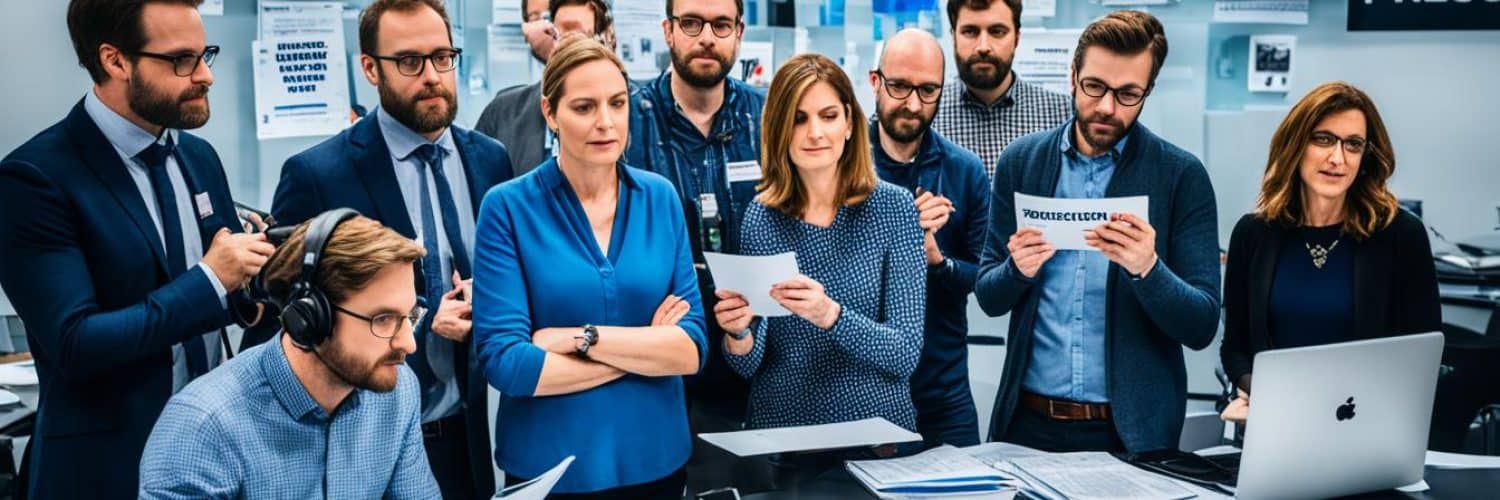
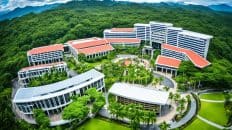
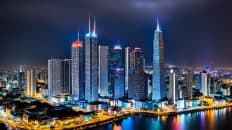











Add comment